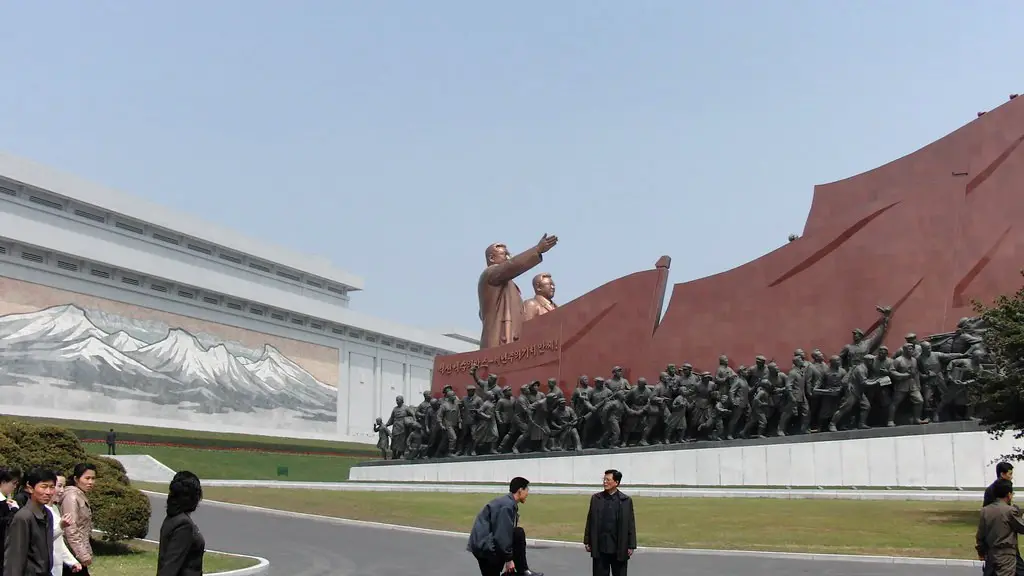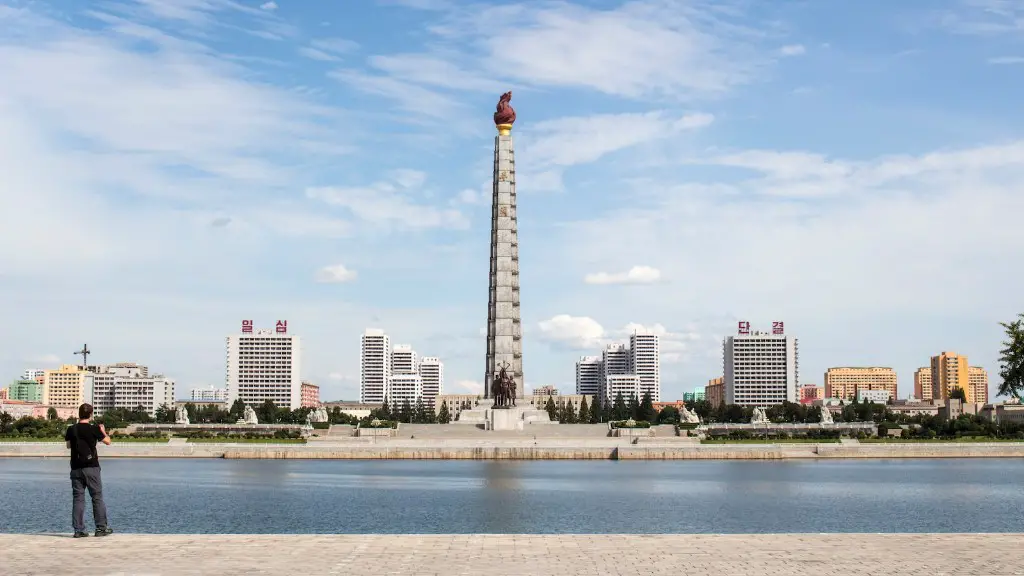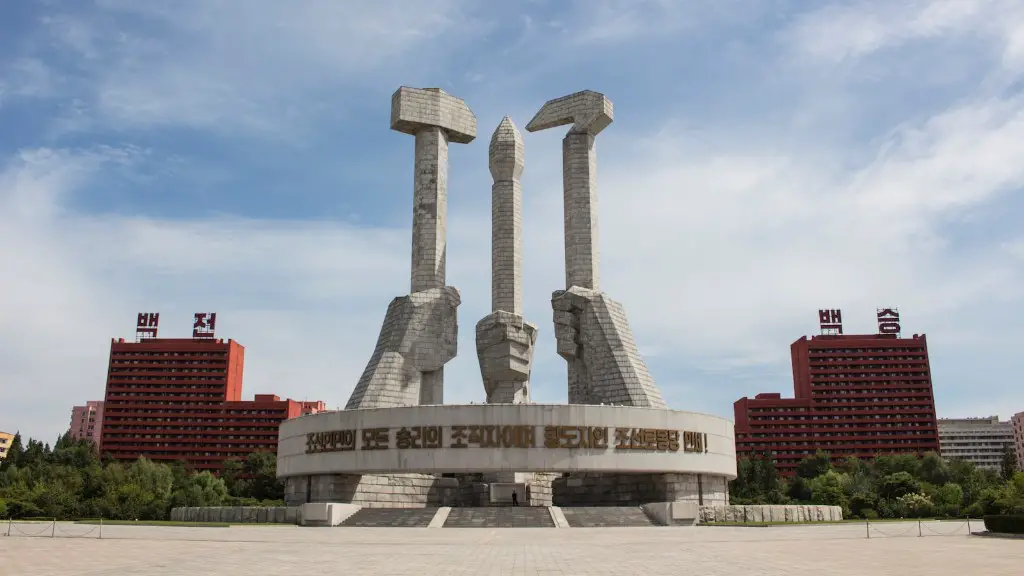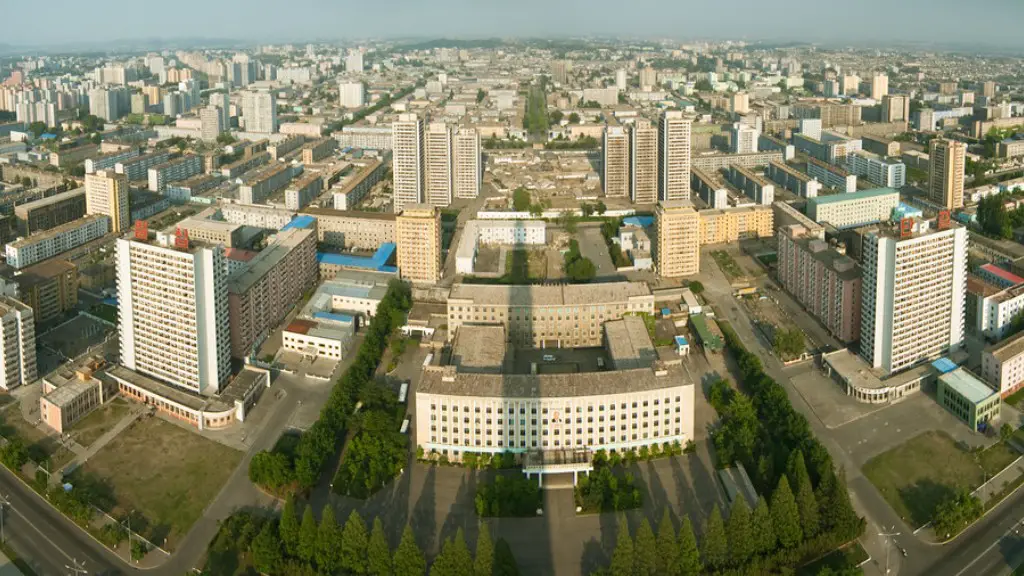Why do people hate North Korea? It is likely that the answer could fill volumes. After all, North Korea is one of the most repressive and oppressive regimes in the world today. It has been called a “Stalinist state” and the “hermit kingdom.”
Its record of human rights abuses, its nuclear weapons program and its hostility towards the outside world, have all contributed to its bad reputation – and to the revulsion felt by people in many countries.
The origins of the loathing towards North Korea can be traced back to the years immediately after the Second World War, when the Korean peninsula was divided into two – with the Korean War then being fought from 1950 to 1953. North Korea was entrenched in the hegemony of the Soviet Union while South Korea was an ally of the United States.
Since then, North Korea has been run by an oppressive dictatorship headed by the current leader Kim Jong-un, who rose to power in 2011. He has continued the personal rule of his father and grandfather, who have both controlled the country since the beginning of the Cold War.
North Koreans have been subjected to starvation, political oppression, forced labor, and summary executions.It is worth noting that although North Korea has been able to keep the majority of its citizens under close control, it has been unable to fully silence the voices of its citizens who are escaping or speaking out against the regime.
The international media has been able to report on some of the horrid realities of life in the country, amplifying the feeling of disgust and horror. Reports of famine, human rights abuses, weapons testing, and aggressive rhetoric emanating from Pyongyang are all common.
In addition, North Korea’s nuclear testing has raised fears of a potential military conflict. This only serves to increase the sense of animosity that people in the global community feel towards the regime.
Relationship With South Korea
The relationship between North and South Korea is often cited as a major factor in why people hate North Korea. This animosity is a legacy of the war between North and South which has been alive in both countries since the 1950s. Activity such as military exercises and missile tests on both sides of the border have only served to heighten tensions between the two sides.
The threat of conflict still looms large, exemplified by the 2018 Olympics incident in which North Korea’s leader Kim Jong-Un even threatened South Korea with ‘merciless punishment’ over the issue of a joint Women’s Ice Hockey team.
North Korea has also sought to demonize the South Korean government in order to retain control over its populace, which has had a noticeable impact on the mental health of many South Koreans.
The South Korean government in turn has done its best to distance itself from and contain North Korea’s militaristic behavior. From shutting down the Kaesong Industrial Complex to introducing a comprehensive sanctions regime, the South Korean government has constantly sought to limit the influence and presence of North Korea in the region.
South Koreans’ distaste for North Korea was further compounded by the recent assassination of Kim Jong Nam, the half-brother of the North Korean leader, in Malaysia in 2017. Most saw this as yet another sign of the illegitimate and oppressive regime’s willingness to use violence to protect its power.
Other Country’s Relationships
Other countries around the world have their own issues with the North Korean regime. As mentioned earlier, North Korea’s nuclear weapons program has been a major cause for concern in many countries.
The US has been particularly vocal, accusing the North Korean regime of developing nuclear technology with the intention of using it as a bargaining chip in foreign policy. This concern has only been heightened by North Korea’s multiple missile tests.
In the eyes of South-east Asian countries, North Korea is seen as a pariah regime. The assassination of Kim Jong Nam in Malaysia is seen as a breach of international norms by the North Korean regime, while South Korea and Japan have also denounced North Korea’s military provocations and missile tests.
In other countries, the regime is demonized as a result of its human rights violations and its abduction of foreign citizens. In recent years, there have been reports of political prisoners being subjected to torture, forced labor, and arbitrary detention.
The regime is also accused of running a network of prison camps, or ‘gulags’, where inmates are kept in harsh and inhumane conditions. Visitors to these camps report seeing malnourishment, torture and other despicable acts taking place.
North Korean Media
North Korean media also reinforces the global public’s collective loathing towards the North Korean regime. North Korean state media is full of hate-filled diatribes and propaganda against other countries. It often carries stories of North Korean superiority and triumph over western powers, reinforcing the idea that the North Korean regime is oppressive, belligerent and unapproachable.
State media also routinely demonizes the United States and its allies as enemies of the North Korean people. These messages further strengthen the perception that the North Korean regime is oppressive and unresponsive to international pressure.
The North Korean media also serves to distort the truth and spread lies. Many North Koreans have been indoctrinated through this media to believe that the outside world is out to get them and that North Korea must fight off these external threats.
This serves to further undermine public trust in North Korea, and creates a sense of distrust in the North Korean government and its leaders.
North Korea’s Foreign Policy
North Korea’s foreign policy has also been a major contributing factor to why people hate the regime. North Korea’s relationships with other countries have been strained, to say the least. Recent disputes over nuclear weapons and missile tests have only further heightened these tensions.
Furthermore, North Korea has been repeatedly accused of sponsoring terrorism, conducting cyber-attacks, and engaging in illicit activities such as weapons smuggling and drug trafficking. This behavior has only further contributed to the global community’s distrust of the North Korean regime.
The North Korean regime has also been accused of proliferating weapons of mass destruction to other countries, most notably Syria and Iran. This has only further fueled the sense of loathing towards the regime.
The North Korean government has also been accused of committing human rights abuses and denying its citizens basic rights such as freedom of speech and freedom of the press. The regime has also been condemned for its harsh treatment of political prisoners, most notably those who have attempted to flee the country.
The Global Community’s Reactions
As a result of these issues, the global community has reacted with condemnation and imposed several sanctions against North Korea. These sanctions have sought to limit North Korea’s generation and access to money as well as impede its development of nuclear weapons.
Furthermore, the UN Security Council unanimously adopted Resolution 2397 in December 2017. This resolution and others have put pressure on North Korea to abandon its nuclear program and stop its human rights abuses.
In response, North Korea has only sought to strengthen its control over the country and has refused to cooperate with the international community. This unwillingness to cooperate and adhere to the demands of the international community has only further fueled the hatred of North Korea and its government.
North Korean Defector’s Stories
Stories from North Korean defectors, who have bravely managed to escape from the vicious grips of the North Korean regime, provide another layer to the reasons why people hate North Korea.
These stories often detail the horrific conditions that people are subjected to in North Korea, such as endemic poverty, wholesale human rights abuses, and a lack of basic necessities such as food.
These stories also paint a vivid picture of how the North Korean regime ruthlessly suppresses its own citizens and seeks to deny them basic rights. As such, the stories of these defectors have been immensely powerful in shedding light on the injustices and human rights abuses perpetrated by the North Korean regime.
The testimonies of these defectors, combined with the reports from international media sources, paint a picture of an oppressive and oppressive regime that has no regard for the wellbeing and rights of its citizens. This is one of the major reasons why people around the globe continue to hate North Korea.
Economic Impact
North Korea’s economic situation has only compounded the disfavor its regime faces. North Korea suffers from chronic food shortages, with many of its citizens facing malnourishment and starvation. This can be attributed in part to the country’s mismanaged economic policies.
In addition, North Korea’s economy is heavily reliant on other countries for essential goods and services. These countries, such as China and Russia, use their economic leverage to further their own political and military objectives in the region.
The resulting economic problems, coupled with the regime’s oppressive policies, have caused the regime to be viewed as a pariah by the international community. This in turn has fuelled the hatred towards the regime and its oppressive nature.
Censorship and Manipulation
North Korea has also sought to control and manipulate its citizens through censorship and propaganda. North Korea maintains tight control over its citizens’ access to information and knowledge, and attempts to control what they are able to think and express.
The government also maintains strict control over the media and utilizes propaganda to spread its message and promote a positive image of the regime. This only serves to further infuriate and frustrate people in the international community.
The regime has also been criticized for its use of ‘human shields’, employing citizens as a form of protection for its military installations and its leadership.
These acts of oppression are seen by the international community as evidence that North Korea will go to any lengths to deny its citizens their human rights and resort to illegitimate methods of governing.
In summary, North Korea is widely despised by people around the world. Its oppressive regime and its hostility towards the international community has been the source of many of its problems.
Its human rights abuses, nuclear weapons program and its use of propaganda only serve to further fuel the resentment towards the regime. These issues, coupled with the general loathing towards the Kim Jong-un regime, have helped to create an environment of disdain and hatred.





